Are you considering a counter job offer and unsure how to phrase your response? Crafting a thoughtful letter can help you communicate your thoughts clearly and professionally. In this article, we'll explore the essential elements of a counter job offer letter, including how to express your appreciation, outline your reasons for negotiation, and reinforce your value to the company. Ready to learn how to make your counter offer stand out? Let's dive in!

Personalized Greeting
A counter job offer serves as a formal response to a previously received job offer, often intended to negotiate better terms or express differing interests. It typically addresses aspects like salary, benefits, work hours, location, and professional development opportunities. Each point can be tailored to reflect individual circumstances, market research, and career aspirations. The effectiveness of a counter job offer hinges on clear articulation of one's value and rationale behind requests, while maintaining professionalism. This personalized approach fosters constructive dialogue between candidates and employers, potentially resulting in a more favorable employment agreement.
Appreciation for the Original Offer
To express genuine appreciation for a job offer, one can emphasize the positivity surrounding the initial proposal. Acknowledging the company's reputation for creating a supportive work environment and valuing employees can further enhance the sentiment. Focusing on specific elements of the job role, such as engaging projects or opportunities for professional growth, showcases the excitement for the potential position while maintaining professionalism. Highlighting the alignment of personal values with the organization's mission reinforces a strong connection to the company culture. Ultimately, expressing gratitude for the opportunity, while articulating eagerness to discuss further, sets a positive tone for future negotiations.
Highlight of Your Value and Contributions
Employees who engage in negotiations for a counter job offer should articulate their unique contributions to the organization. Significant achievements, such as leading a successful project that resulted in a 15% increase in sales revenue, can showcase the value brought to the team. Commendation from stakeholders highlights interpersonal skills that enhance company culture. Involvement in cross-functional teams demonstrates adaptability and strong teamwork, vital for achieving organizational goals. Moreover, professional development, such as completion of certifications in project management or industry-specific software, underscores commitment to personal growth and the company's vision. Ultimately, clear articulation of these key contributions positions the employee favorably in discussions about compensation and career advancement opportunities.
Specific Counter Offer Terms
When an employee receives a job offer from another company, a counter job offer may be presented to retain the employee. This counter offer often includes specific terms that seek to address the employee's concerns while enhancing their value within the current organization. For instance, salary adjustments, which can range from 5% to 15% above the current compensation, may be offered to match or exceed the competitor's offer. Additionally, benefits enhancements, such as improved healthcare packages or additional vacation days (for example, increasing from 10 to 15 days annually), can be proposed. Career development opportunities, including a formal promotion pathway or funding for professional certifications, can also be part of the negotiations. The work environment may see improvements as well, with flexible work arrangements, like remote work options one to two days a week, implemented to boost job satisfaction.
Closing with Positive Tone and Anticipation for Response
A counter job offer is an essential negotiation step in career advancement, particularly when considering salary, benefits, or job responsibilities. When communicated effectively, it can lay the groundwork for a positive professional relationship. An expression of gratitude for the original offer creates goodwill, while a clear, concise presentation of the counter offer guarantees it is understood effectively. Including a sense of enthusiasm about the possibility of collaboration indicates a willingness to engage and contribute positively to the organization's goals. This approach fosters a sense of anticipation about the employer's response, ultimately enhancing the likelihood of an amicable resolution.

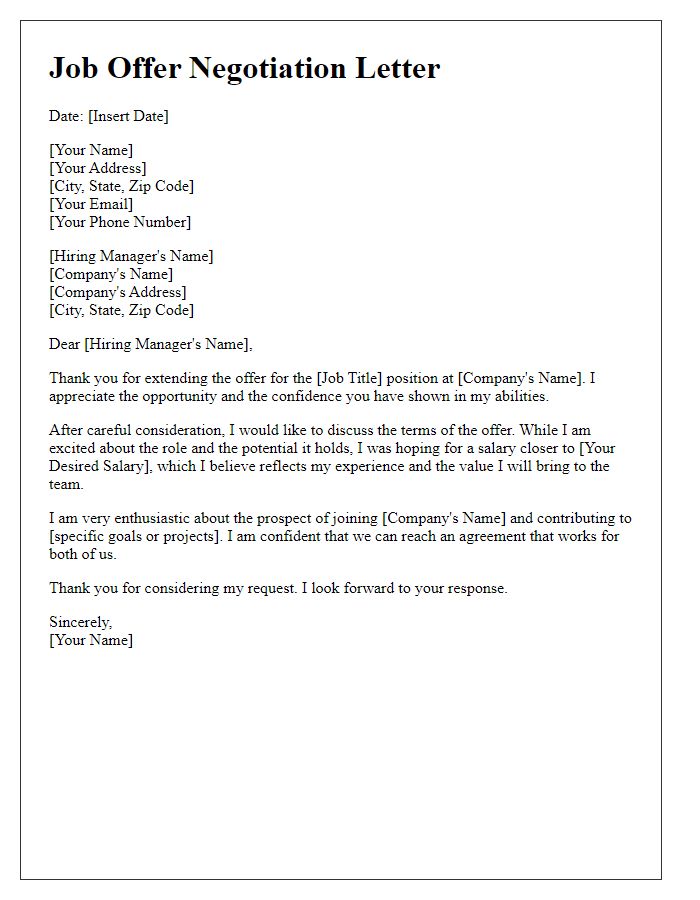
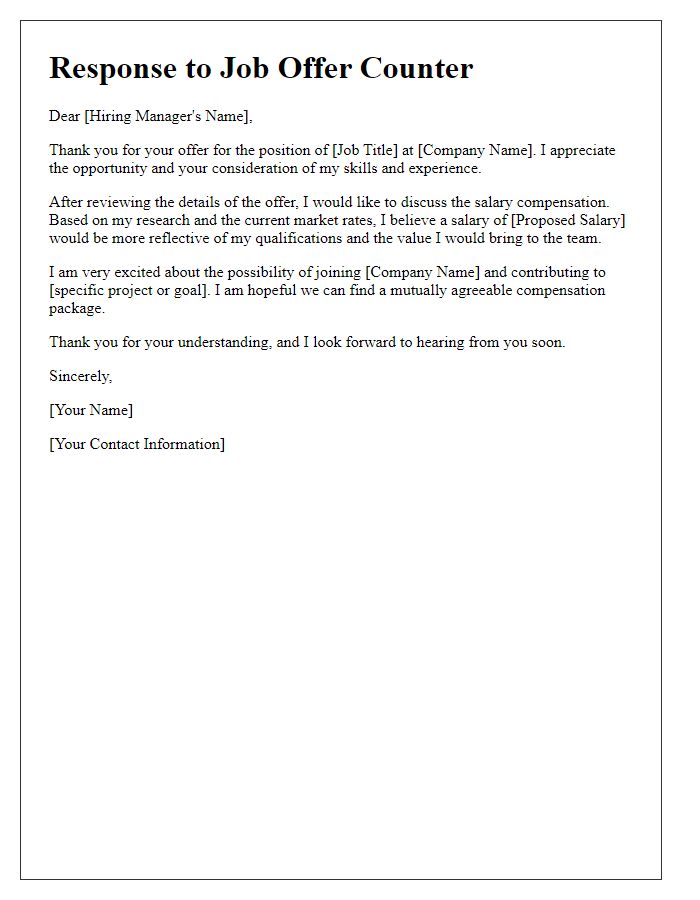
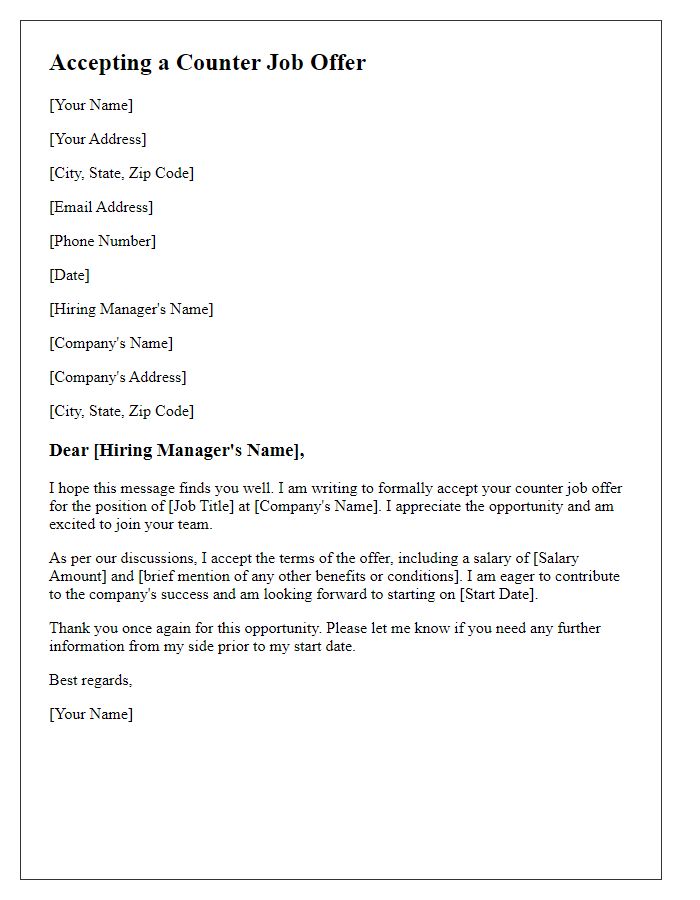
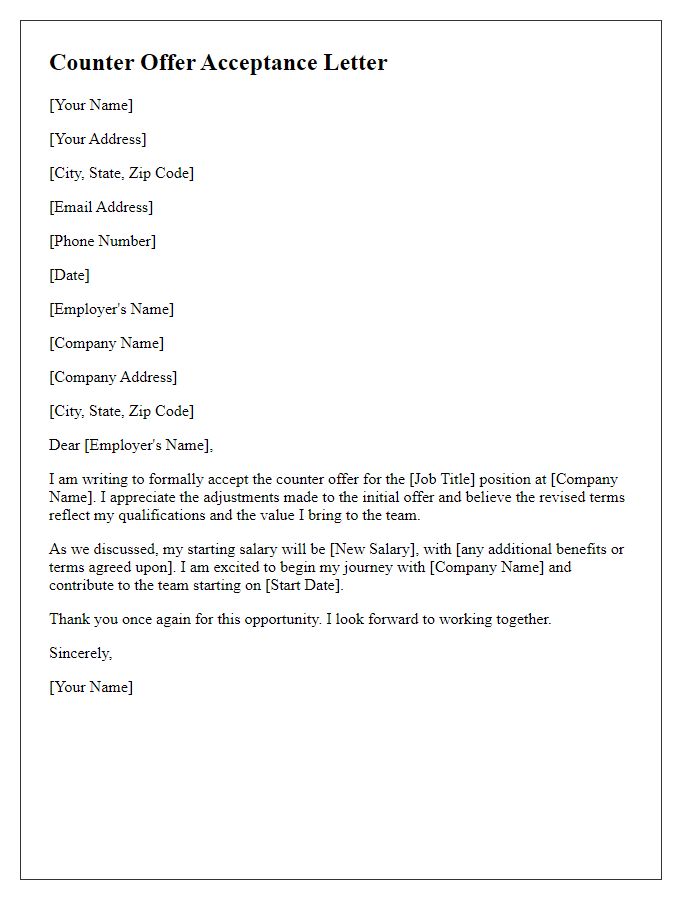
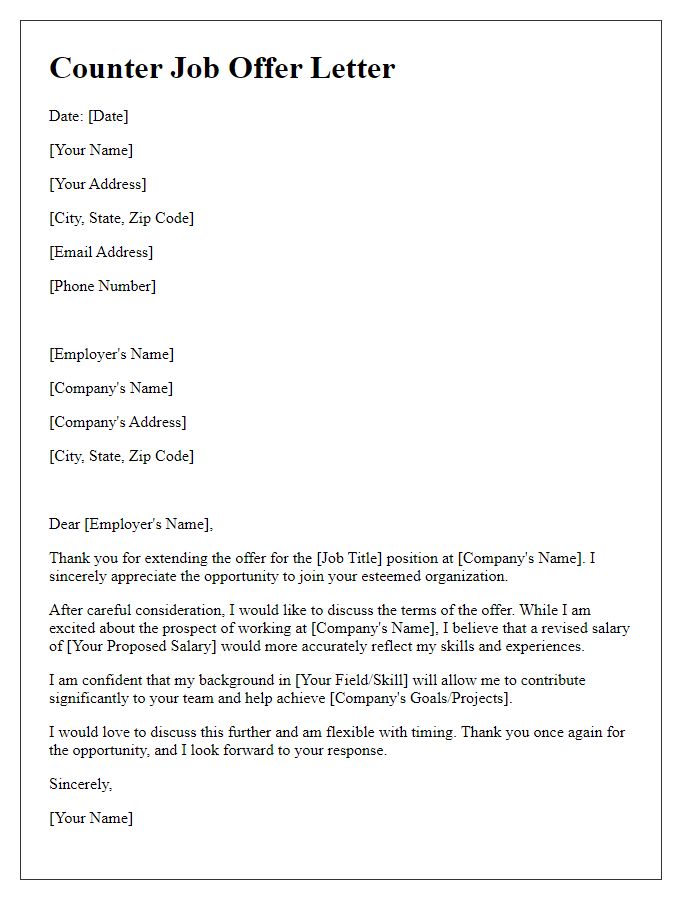
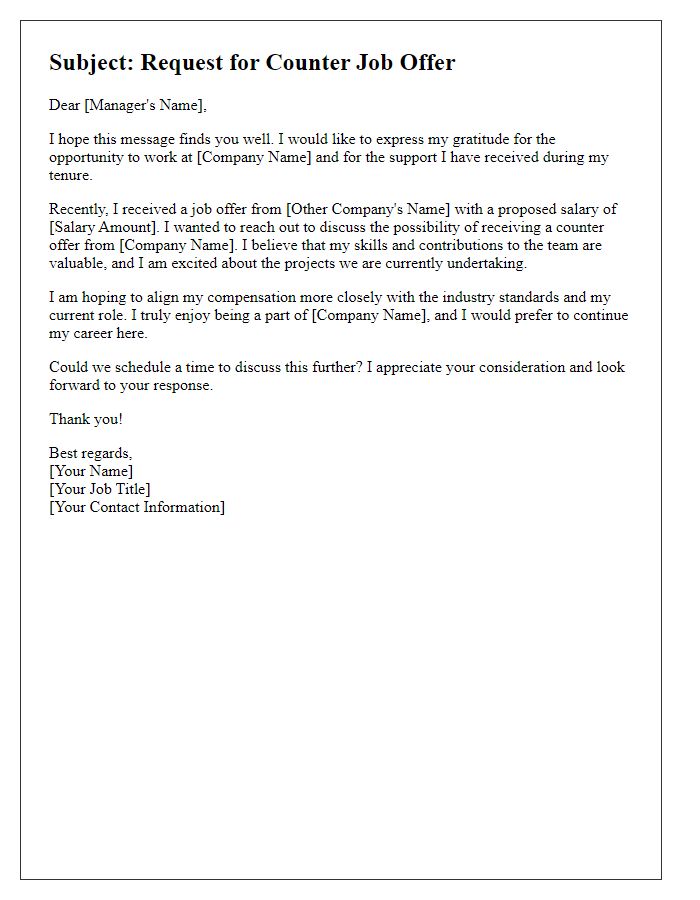
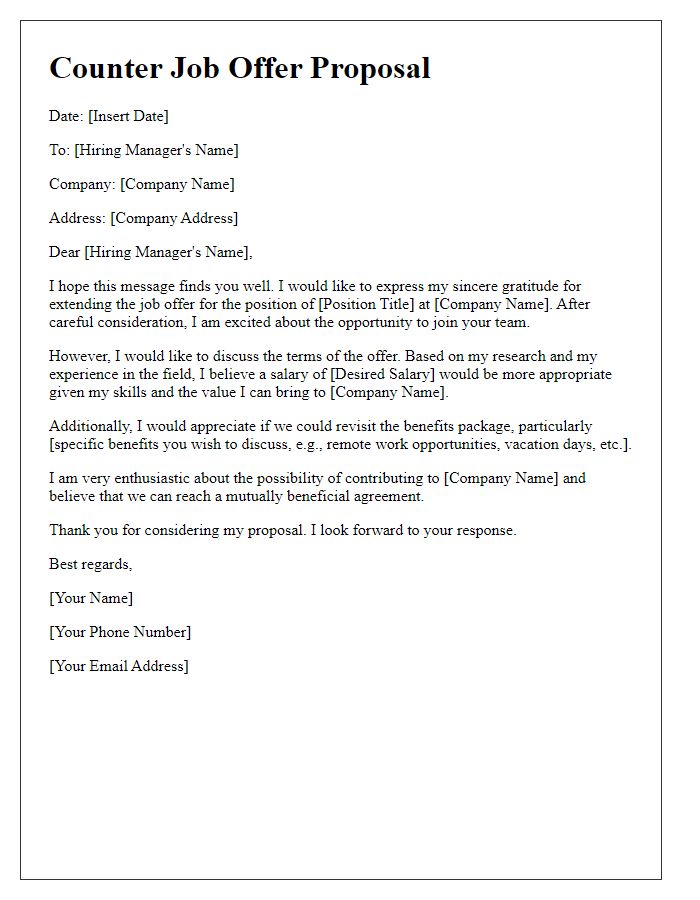
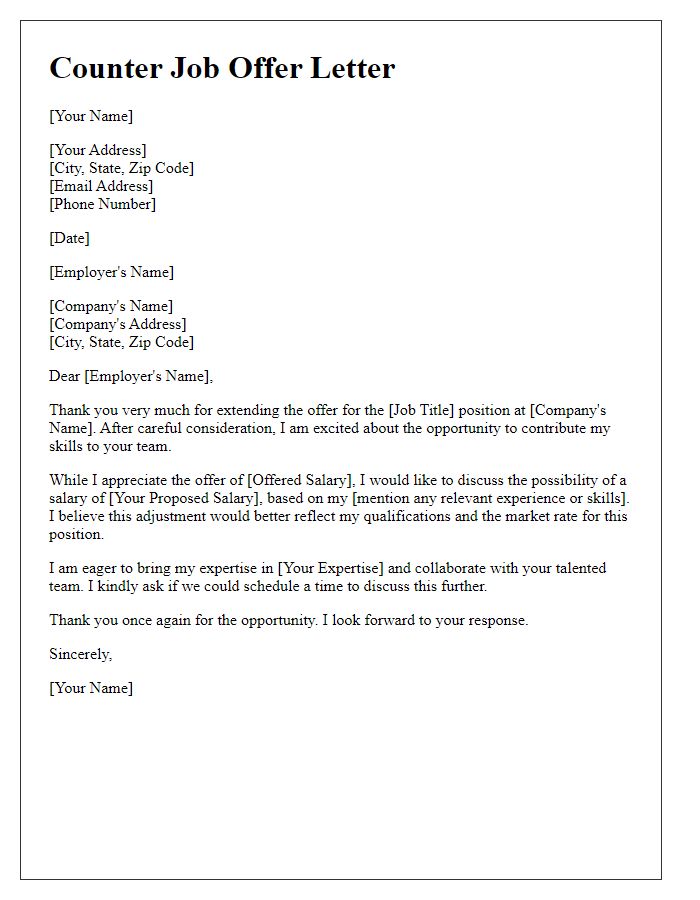
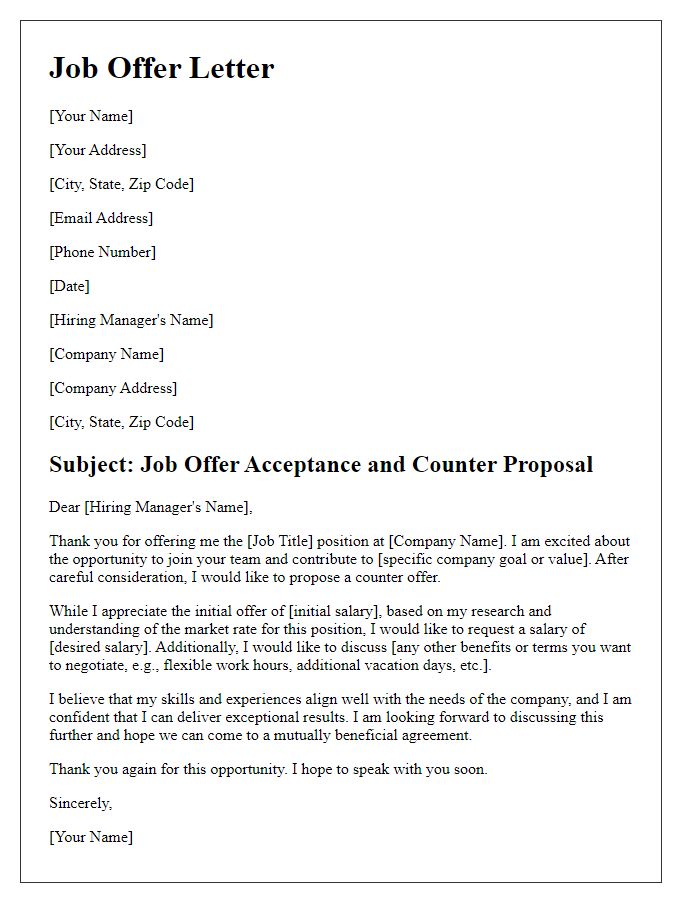
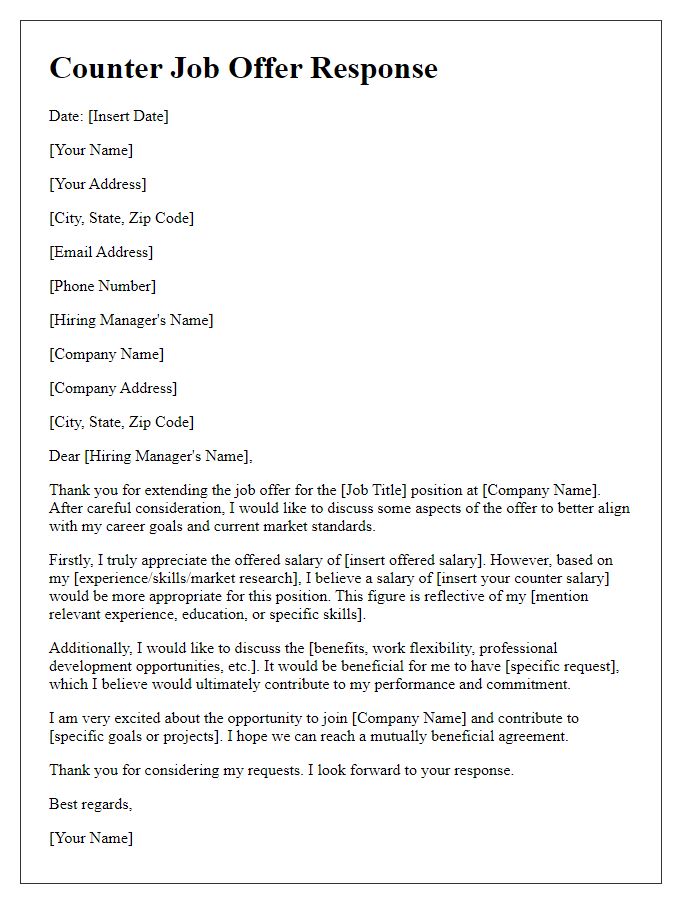


Comments